Belfast 'not functioning' because of traffic jams
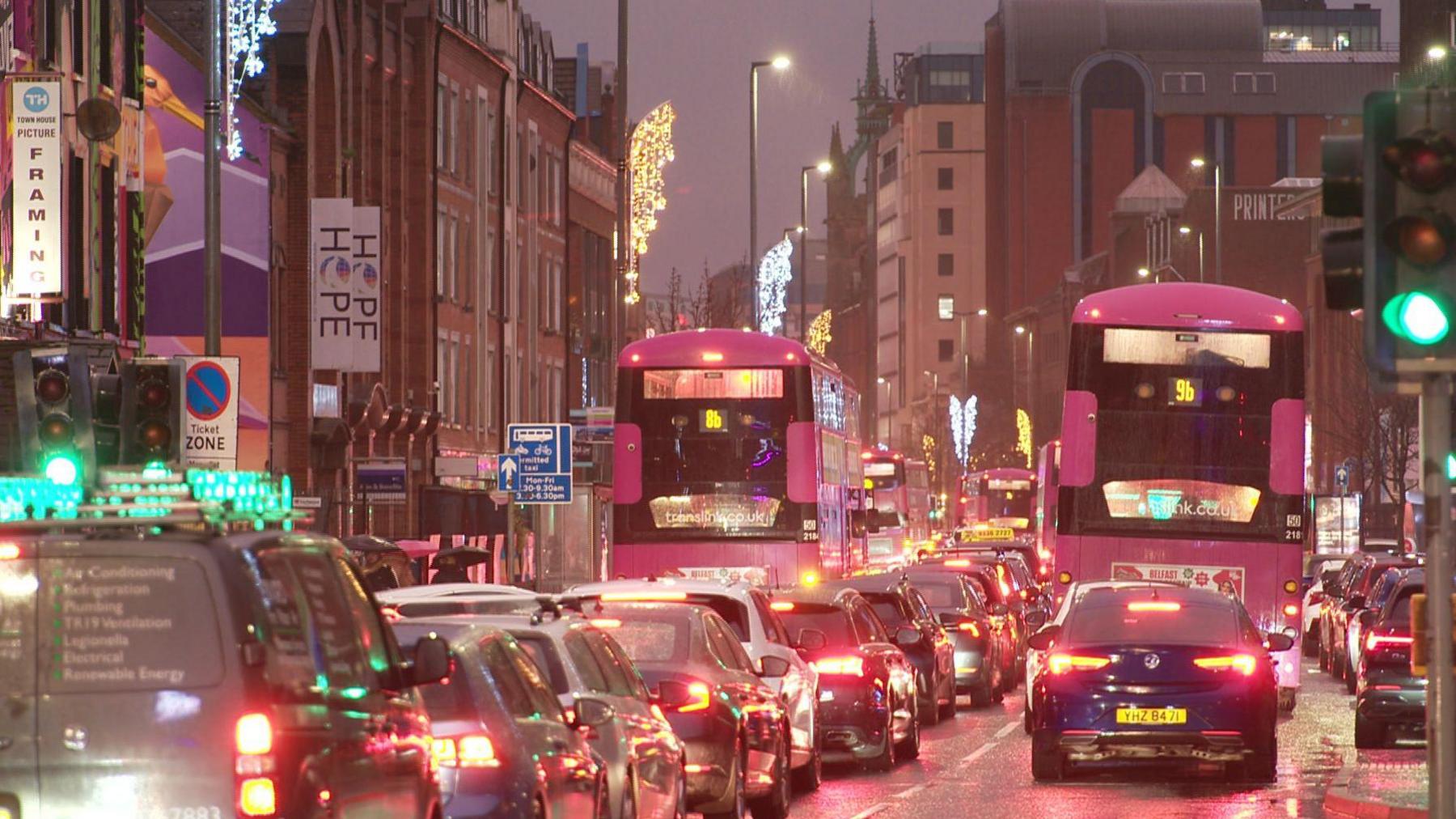
Commuters have been complaining for weeks about the evening rush hour
- Published
The city of Belfast "isn't functioning" because of regular heavy traffic congestion, a councillor has claimed.
Gary McKeown said extensive delays for people travelling through the city were putting "severe pressure" on commuters and their employers.
"It's really, really difficult for anybody to plan anything and people are really at the end of their tether," he added.
On Friday afternoon Translink said that due to heavy traffic in the city centre services were subject to delays and disruption.
Allow X content?
This article contains content provided by X. We ask for your permission before anything is loaded, as they may be using cookies and other technologies. You may want to read X’s cookie policy, external and privacy policy, external before accepting. To view this content choose ‘accept and continue’.
Many motorists and bus passengers were stuck in lengthy traffic queues leaving the city on Thursday evening.
Malfunctioning traffic lights at the junction of Ormeau Avenue, Ormeau Road and Cromac Street added to the problems.
The lights were still out of action on Friday morning.
Some city centre bus stops were not served on three Metro routes on Thursday evening "due to heavy traffic conditions".
Commuters have complained for several weeks about severe congestion leaving the city during the evening rush hour.
Speaking to Radio Ulster's Evening Extra programme on Friday, one Belfast taxi driver said: "People are waiting over an hour on taxis, they're getting frustrated, they're leaving, they're starting to walk – you can't get moved in Belfast, it's become a car park at the minute
"Last night was the worst I've ever seen, obviously there were accidents on the Westlink on the M2 and traffic lights out.
"Tonight, it's getting just as bad and then Disney on Ice is starting soon and it's going to get worse."
In October, several fast food businesses said they had given up trying to deliver orders between 16:00 BST and 19:00 on weekdays.
"The city just isn't functioning, it is in gridlock," McKeown told the BBC's Good Morning Ulster programme.
"For example if you have childcare commitments and you need to get up the road before six o'clock and you're stuck in traffic and can't get there, that's hugely stressful."
The Social Democratic and Labour Party (SDLP) councillor said it had become "utterly frustrating for people".
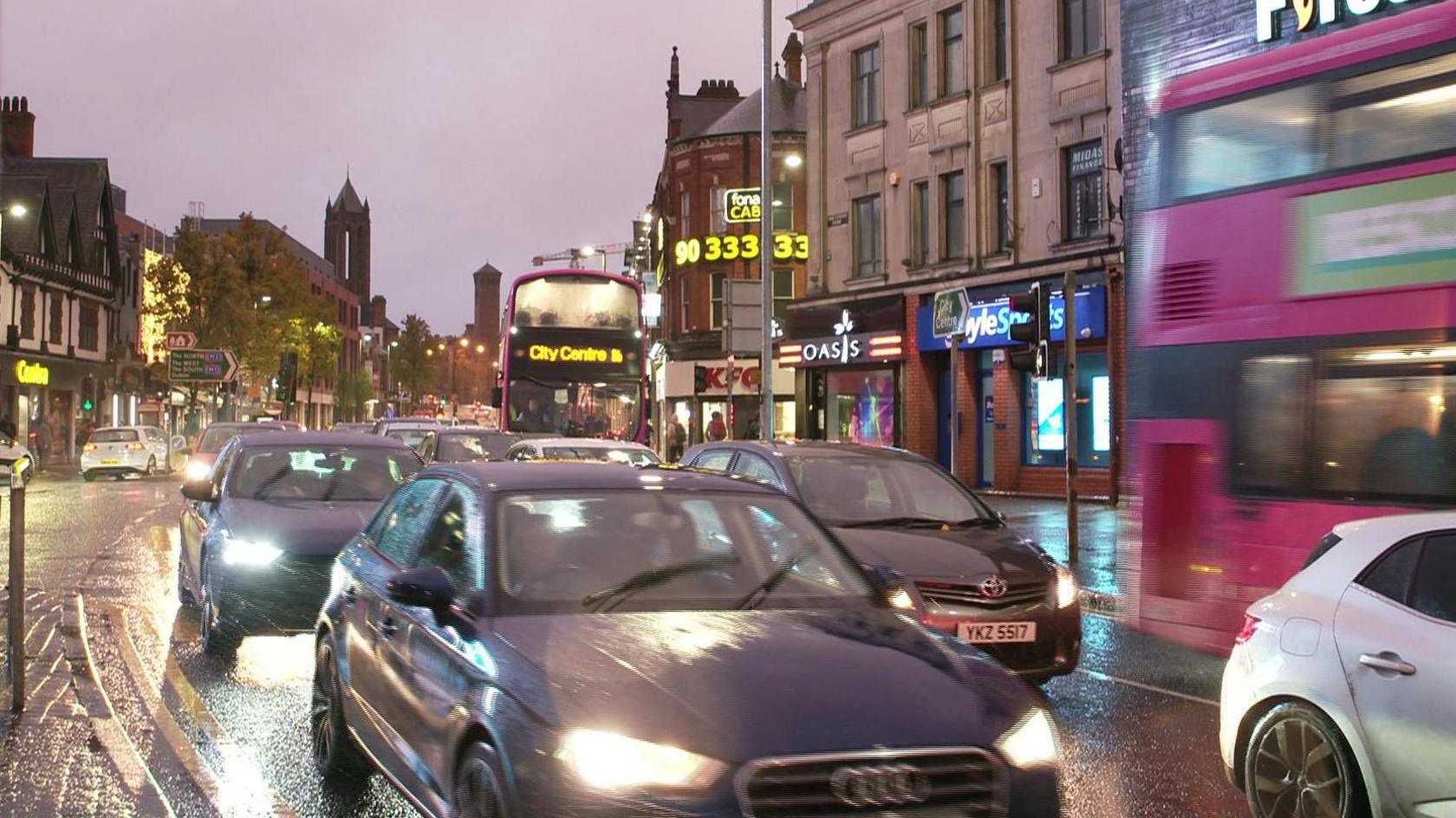
Motorists have been going nowhere fast in Belfast city centre
'Car-centric'
Speaking on the programme, Alliance councillor Michael Long said the main problem was that Belfast was operating on a "car-centric" system.
He argued that greater use of public transport would be "one of the main answers" to the problem.
However, he claimed that some current bus services were "not reliable," or frequent and the vehicles were "getting snarled up" by private car congestion.
"A bus will be signed to come - it doesn't turn up and then it disappears off the board," Long said.
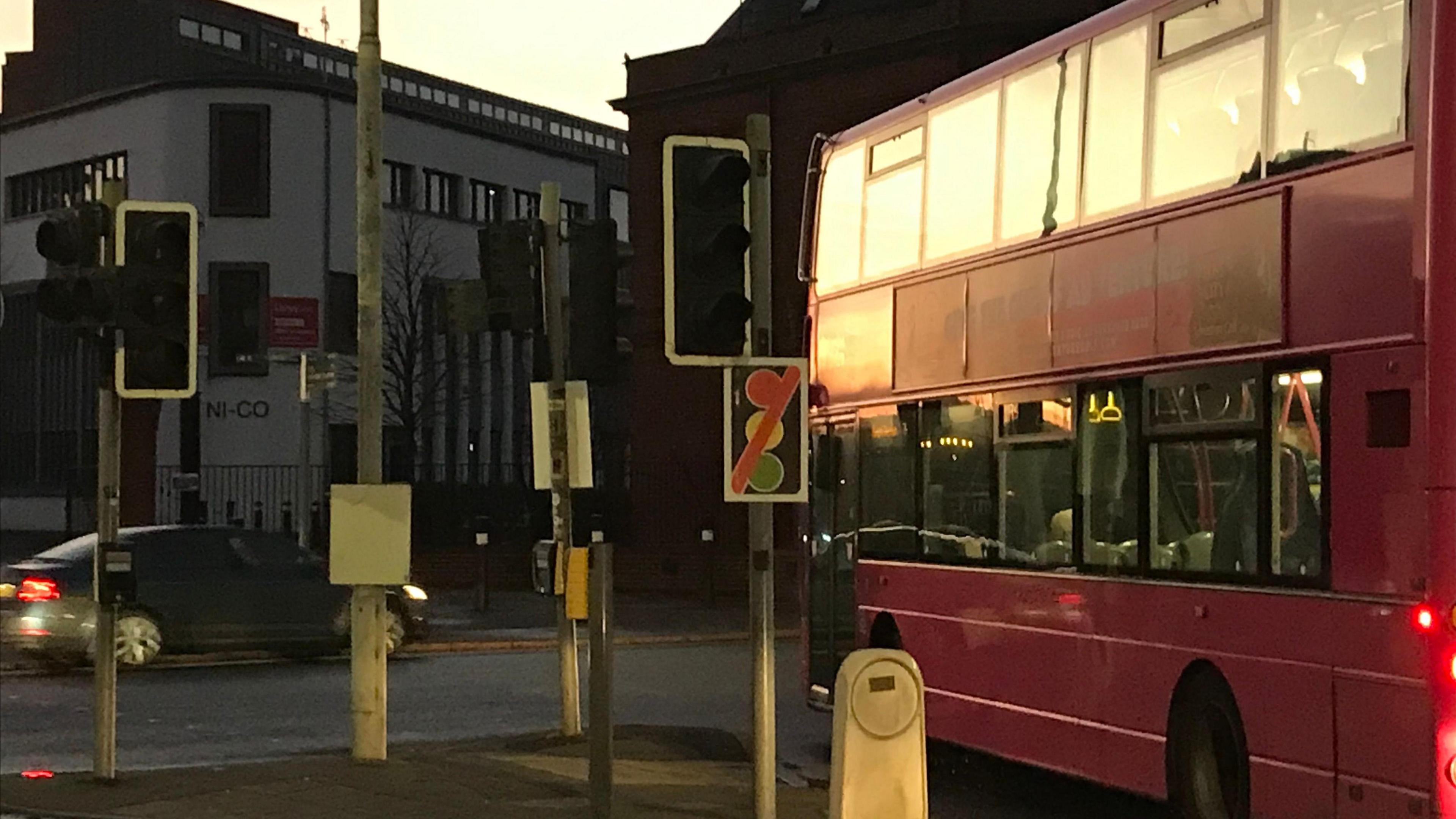
Traffic lights at Ormeau Road/Cromac Street/Ormeau Avenue were still out of action on Friday morning
Earlier this week, the programme spoke to bus passengers who have been affected by congestion and temporary bus stop changes.
One passenger, who works in Ulster University, said her journey home from a city centre bus stop usually took about 25 minutes, but over the past month it has been taking between one and two hours.
In a statement, Northern Ireland's public transport operator Translink said: "As is the case in many cities in the run up to Christmas, traffic is very heavy in Belfast.
"We continue to monitor timetables and capacity and adjust services where possible to minimise the impact on our customers."
Fewer cars on the road would lead to 'less congestion'
Stormont's Department for Infrastructure (DfI) said city centre traffic had been busy due to pre-Christmas visitors, as well as a number of incidents and events across the city.
"The Department is continuing to work with partners to undertake a range of mitigation measures to help ease traffic congestion in Belfast City Centre. The Department is particularly appealing to drivers to not block yellow boxes, as this only exacerbates the congestion," a spokesperson added.
The spokesperson said that consideration of other methods of travel was "key to helping address the current situation".
The DfI is encouraging travellers to avoid the congestion by considering other sustainable and active modes of travel such as public transport, using the park and ride sites or by walking or cycling.
"The less cars on the road, the less congestion there will be, and therefore, less disruption to public transport timetables."
- Published11 October 2024
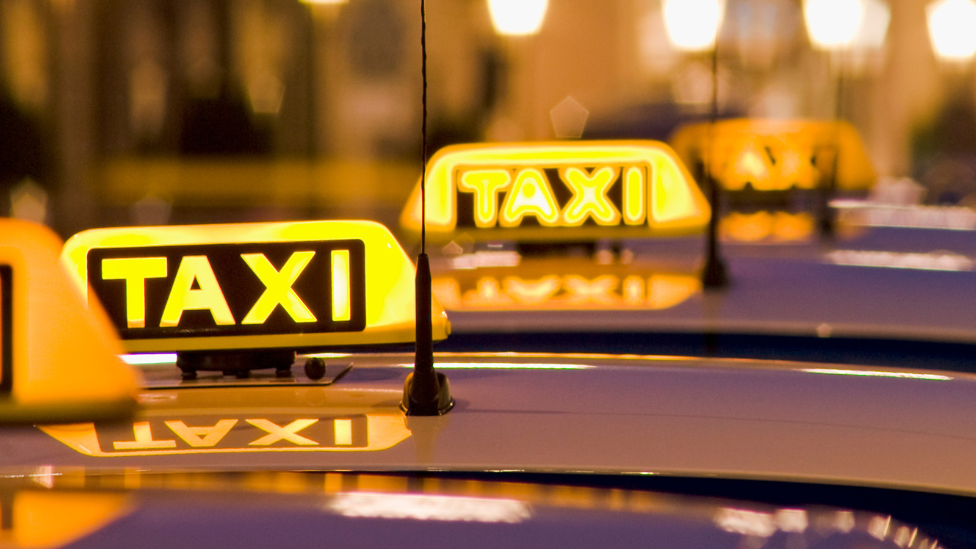
- Published18 October 2024
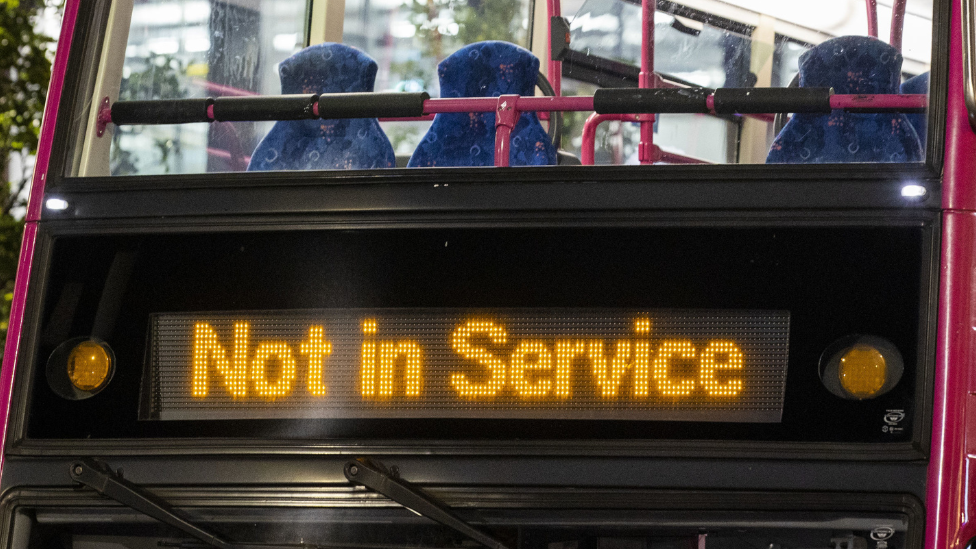
- Published27 October 2024
